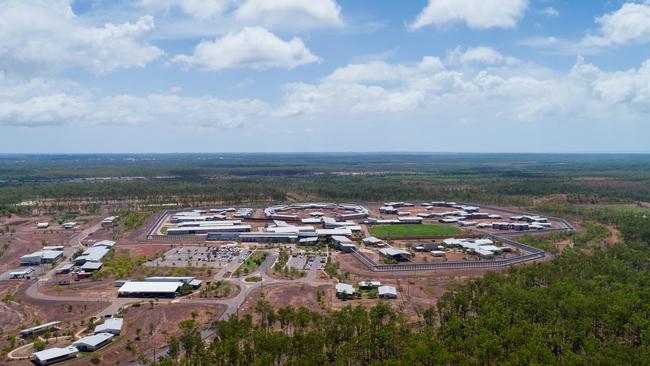Justice Reform Initiative report says $300m needed to address ‘chronic’ crime prevention shortfall
An analysis of the Territory’s ‘chronically underfunded’ crime prevention sector has recommended a $300m increase to reduce reoffending. Read about some of the programs making a difference.
Police & Courts
Don't miss out on the headlines from Police & Courts. Followed categories will be added to My News.
A multimillion-dollar funding commitment is needed to bolster the Territory’s “chronically underfunded” crime prevention sector, a new report has recommended.
A Justice Reform Initiative report has proposed that the NT and federal government commit $300m over the next four years to programs to break the cycle of crime in the Territory.
The Alternatives to Incarceration in the NT report, released on Tuesday, has called for evidence-based reforms to policing, courts and prisons.
The calls for reform come as 1 per cent of the Territory’s population spent Saturday night locked up, while prisoner overflows continue to be redirected to police watch houses.
The Corrections Department confirmed that 2049 people were locked up on Saturday — including 40 in watch houses due to the prisons running over capacity.

The JRI report said Territorians were five times more likely to be imprisoned than the average Australian.
It also found the Territory had the second highest recidivism rates in the nation, with three-quarters of those behind bars having served time before.
“We cannot arrest our way to a safer community,” the report said.
The JRI has called for greater funding towards alternatives to custody, analysing the successes of 23 Territory-based programs, alongside more than 50 Australian and international case studies.
The report said if properly funded, early-intervention programs, specialist courts, bail support and alternatives to custody could address “critical touch points” in a person’s journey through the justice system.
The report highlighted local success stories, including the Anindilyakwa Groote Peacemakers Program which resulted in a 95 per cent reduction in youth offending, and a Tiwi Islands youth diversion program which dropped reoffending rates to 20 per cent.
It also found the NAAJA throughcare program, which supported those on lengthy sentences leave prison, reduced reoffending and bail breaches rates to just 13 per cent.
The report said these programs were critical, particularly as 54 per cent of Australians leaving prison were exiting into homelessness.

“Most people leave prison in the NT with no meaningful community-based supports, nowhere safe to live, minimal financial stability, and limited employment opportunities,” it said.
“(Sometimes) it is much easier to return to prison than it is to survive in the community.”
The JRI said programs like these suffered from “piecemeal resourcing” from government, and were either underfunded or only run as short-term pilot projects.
“These programs are … currently operating on a scale that is too small to make a systemic difference when it comes to the reduction of recidivism and the reduction of criminal justice system contact.
“We need to embrace a criminal justice model that genuinely relegates prisons to a position of last resort, and instead centres community-led interventions that really work to break cycles of disadvantage, reduce reoffending, and build safer communities.”
Given the over-representation of Aboriginal Territorians in prison, the JRI recommended 80 per cent of the $300m be dedicated to First Nations-led organisations.
With the latest Productivity Commission data putting a $244m price tag on prisons — and a further $47m on youth detention — the JRI report said these programs created a cost-effective and ultimately safer future for the Territory.
Alongside additional funding, the JRI has called for legislative change to reduce the use of prisons as the “default response to both disadvantage and crime”.
The report said a ‘tough on crime’ political agenda had influenced legislation, resulting in a failure to commit to evidence-based policies.
However, it called the most recent bail changes a “regressive” reform.
“There is … strong evidence to suggest that pre-trial detention and remand, even for short-term periods, contributes to future offending,” it said.




